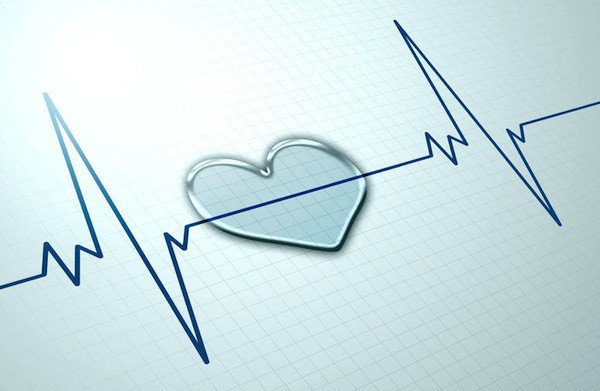Lara Pizzorno is the author of “Your Bones: How You Can Prevent Osteoporosis and Have Strong Bones for Life – Naturally” and a member of the American Medical Writers Association with 29 years of experience specializing in bone health.
Recently we asked Lara if she would help us provide a series of short, ongoing videos to help you (our customers and readers) stay up to date on the latest facts and science related to bone health.
In this latest video, Lara discusses the specific role that vitamin K2 plays and what happens if you aren’t getting enough. Watch the video below (or read the transcript provided) and let us know what you think in the comments. 🙂
Hello, my name’s Lara Pizzorno. I’m the author of “Your Bones,” and I’m here to share some information with you that will help you to have healthier bones. Today I’d like to talk with you about how Vitamin K2 works and what happens when your intake of K2 is too low.
Vitamin K2 is the co-factor for an enzyme called gamma-glutamyl carboxylase. You can think of Vitamin K2 as the spark plug for this enzyme. If you don’t have Vitamin K2 around to insert into this enzyme, the enzyme doesn’t work. And you really need this enzyme to work because it is required for a biochemical reaction called carboxylation. And carboxylation is what activates a number of proteins that are absolutely essential for healthy bones.
So unless K2 turns on the enzyme, gamma-glutamyl carboxylase, which then turns on or carboxylases the proteins that regulate where calcium goes in our bodies, these proteins don’t work.
And calcium could end up where you don’t want it in your arteries, kidneys, breasts, or brain and not in your bones.
The proteins, they’re Vitamin K dependent proteins, they are a class of proteins called Vitamin K dependent proteins because without Vitamin K they don’t work.
These proteins are called gamma-carboylglutamic proteins or the Gla, G-L-A, Gla proteins. One of the Gla proteins that K2 activates is called osteocalcin, and osteocalcin’s job is to attract the calcium molecules there in your bloodstream and then anchor them into the hydroxyapatite crystals that form your blood natures. If no activated osteocalcin is around, then the calcium molecules don’t get pulled into bone and firmly embedded there. If too little osteocalcin is activated, only some of the available calcium that’s floating around in your bloodstream and that should get put into your bones will get put there.
K2 is also responsible for activating another protein essential for healthy bones. This protein is called matrix-Gla protein, so one of the Gla proteins, and its job is to prevent calcium from depositing in and calcifying soft tissues, such as your heart, arteries, breasts, kidneys, or brain.
When K2 levels are too low…
Matrix-Gla protein is off duty, it’s not working. So the calcium that we consume and want to go into our bones gets sidetracked and can go where we do not want it to go, namely, into our arteries, kidneys, breasts, or brain.
I’ve already talked about a paper that came out in 2011 from an analysis of data from the Women’s Health Initiative study that suggested that if you took calcium and Vitamin D you might even slightly increase your risk for a heart attack. Just in case you haven’t had a chance to listen to the video clip in which I’ve already discussed this, I’m going to repeat here what was really going on in that study and that was no K2.
To have healthy bones:
- We absolutely have to have calcium.
- And to be able to effectively absorb that calcium we must have Vitamin D.
You can trust your body. It comes pre-programmed to work for you. Calcium and vitamin D are absolutely essential nutrients for healthy bones. Our bodies are intelligently designed and having healthy bones is not going to cause heart attacks unless you’re missing something else that’s needed. 
What does increase risk of heart attacks and osteoporosis as well is not having adequate Vitamin K2 around. Vitamin K2 activates the proteins that regulate where calcium goes in our bodies. Both the Vitamin K dependent protein called osteocalcin that’s responsible for calcium into your bones and the Vitamin K dependent protein called matrix-Gla protein that is responsible for preventing calcium from depositing in your heart, arteries, and etcetera.
The women in this study were not taking Vitamin K2, they were only taking calcium and Vitamin D. So they were not providing their bodies with the Vitamin K2 necessary to put the calcium that the Vitamin D was helping them to absorb into the right place, their bones.
Not supplying your body with plenty of Vitamin K2, results in impaired calcium deposition in your bones and increased likelihood of calcified arteries because without enough Vitamin K around neither osteocalcin which puts calcium into bone nor matrix-Gla protein which keeps the calcium out of soft tissues can be activated.
So in relation to your bones, that’s what Vitamin K does. And now you know why K2 is included in AlgaeCal+. In our next video we’ll talk about the dietary sources of Vitamin K2. Thanks for tuning in, and I hope this was helpful to you.
Sources:
Bolland MJ, Grey A, Avenell A, et al. Calcium supplements with or without vitamin D and risk of cardiovascular events: reanalysis of the Women’s Health Initiative limited access dataset and meta-analysis. BMJ. 2011 Apr 19;342:d2040. doi: 10.1136/bmj.d2040. PMID: 21505219
Pizzorno, L. Vitamin K, Longevity Medicine Review, 2009.
Pizzorno, L. Vitamin K2, but not vitamin K1, is helpful for bone density. Longevity Medicine Review, 2009.
Pizzorno, L. Vitamin D and Vitamin K team up to lower CVD risk: Part I, Longevity Medicine Review, 2009.
Pizzorno, L. Vitamin D and Vitamin K team up to lower CVD risk: Part 2, Longevity Medicine Review, 2009.
van den Heuvel EG, van Schoor NM, Lips P, Magdeleyns EJ, Deeg DJ, Vermeer C, den Heijer M. Circulating uncarboxylated matrix Gla protein, a marker of vitamin K status, as a risk factor of cardiovascular disease. Maturitas. 2014 Feb;77(2):137-41. doi: 10.1016/j.maturitas.2013.10.008. Epub 2013 Oct 24. PMID: 24210635
Dalmeijer GW, van der Schouw YT, Vermeer C, Magdeleyns EJ, Schurgers LJ, Beulens JW. Circulating matrix Gla protein is associated with coronary artery calcification and vitamin K status in healthy women. J Nutr Biochem. 2013 Apr;24(4):624-8. doi: 10.1016/j.jnutbio.2012.02.012. Epub 2012 Jul 20. PMID: 22819559
Schurgers LJ, Uitto J, Reutelingsperger CP. Vitamin K-dependent carboxylation of matrix Gla-protein: a crucial switch to control ectopic mineralization. Trends Mol Med. 2013 Apr;19(4):217-26. doi: 10.1016/j.molmed.2012.12.008. Epub 2013 Jan 30. PMID: 23375872
Theuwissen E, Smit E, Vermeer C. The role of vitamin K in soft-tissue calcification. Adv Nutr. 2012 Mar 1;3(2):166-73. doi: 10.3945/an.111.001628. PMID: 22516724
Flore R, Ponziani FR, Di Rienzo TA, et al. Something more to say about calcium homeostasis: the role of vitamin K2 in vascular calcification and osteoporosis. Eur Rev Med Pharmacol Sci. 2013 Sep;17(18):2433-40. PMID: 24089220
El Asmar MS, Naoum JJ, Arbid EJ. Vitamin k dependent proteins and the role of vitamin k2 in the modulation of vascular calcification: a review. Oman Med J. 2014 May;29(3):172-7. doi: 10.5001/omj.2014.44. PMID: 24936265





Anita Gilliam
September 29, 2015 , 9:19 amI can’t seem to get any specific answers from anyone as to what calcium supplement is best for me to take taking into
consideration that I have had kidney stones twice. I take D3 supplement but no calcium because I don’t know what type of calcium to buy and I can’t swallow the usual big tablets that calcium comes in. Any suggestions?